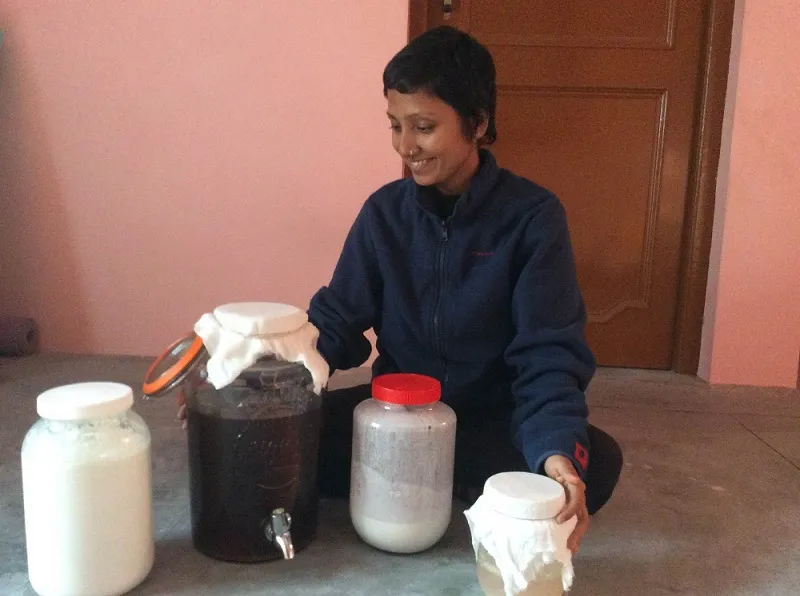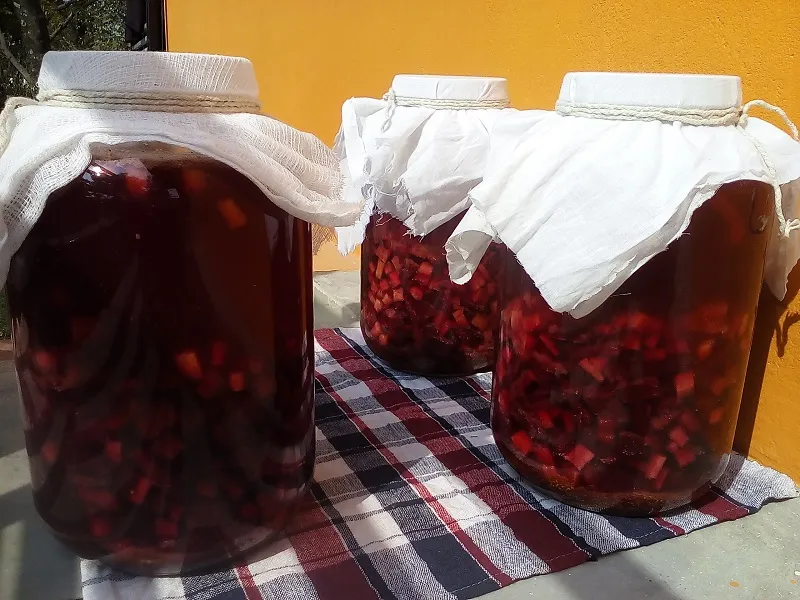How Prana Foods makes delicious bacteria that is good for your health

Kimchi from Korea, kombucha from Japan, sauerkraut from Germany, kefir from Caucasus, gundruk from the Himalayan regions, cortido from Latin America; have you heard of these names? All these tell the story about how people from different parts of the world have made use of fermented foods to fulfil their nutritional needs from the time when refrigerators were not in use to preserve food.
Various archaeological sources reveal that the tradition of fermentation existed even before the neolithic age, which was when agriculture began. After the industrial revolution, the unhealthy practices of having fast, packaged foods available at our fingertips and having the luxury of using a refrigerator has made raw, natural nutrition disappear from our diets.
The phenomena of the rise of pharmaceutical giants has forced us to believe without questioning, the idea that bacteria are life-threatening and “99.9% of them need to be killed for our safety!” Fortunately, recent researches into the field of health sciences tell us that, in our bodies, bacteria outnumber the cells containing our unique DNA by more than 10 to 1. Around 100 trillion are found in our intestines and they constitute approximately 2-3 kgs of our body weight. For millions of years, they have been co-evolving and co-existing with us, co-creating well-being for themselves and for us. Can we afford to ignore this delicate and brilliantly functioning ecosystem thriving inside of us anymore?
The energy crisis the world is facing today calls for the use of ways where food can be produced with least energy expenditure on growing, transporting, preserving and cooking, but, at the same time these techniques should fulfil the nutritional requirements of a growing population. Fermentation of local produce has empowered communities for thousands of years to create nutritional self-sufficiency and to have the joy of using their culinary creativities to create a delicious way of living with health and abundance.

So, what are fermented foods?
Fermented foods are the foods that have been through a process of fermentation in which natural bacteria feed on the sugar and starch in the food creating lactic acid. This process preserves the food and creates beneficial enzymes, b-vitamins, omega-3 fatty acids, and various strains of probiotics.
The bacteria;
- Break down the nutrients we would not otherwise be able to digest, making them more available to us.
- Detoxify the food. Eg., fermentation has been found to biodegrade certain pesticide residues on veggies.
- Provide us with vital defense by outcompeting the harmful invading pathogens.
- Are able to modulate ‘expression’ of some of our genes, related to diverse and fundamental physiological functions including immune response, considering the fact that almost 80% of our immune system is in our gut.
How do fermented foods help you?
Fermented foods;
- Treat and prevent diseases of the digestive tract such as diarrhea, inflammatory bowel disease, IBS, constipation, colon cancer
- Treat vaginal infections and improve menstrual health in women by improving the functioning of endocrine system and correcting the oestrogen recycling mechanism. The health of endocrine system and the proper functioning of the oestrogen recycling mechanism is also responsible for keeping the health of the prostate gland in men.
- Reduce incidences and duration of common colds, respiratory problems and allergies.
- Improve liver function.
- Lower high blood pressure and reduce cholesterol.
- Improve the health of kidneys, thus, preventing the formation of kidney stones and treat urinary tract infections.
- Help in treating diabetes provided the fermented food being consumed did not make use of any sugar. Eg., Milk kefir and cultured vegetable juices are very beneficial for diabetics.
- Improve the feedback mechanism for hunger by regulating the secretion of relevant hormones, thus maintaining healthy body weight.
What is Prana doing right now
Prana is studying various traditions of fermentation from different parts of the world, how they have benefitted those communities and what will be the most efficient ways to produce fermented foods from locally available produce for well-being and sustainability in our local communities. Prana is now conducting 2 kinds of wellness programs which are available online too:
- Annapurna is about learning to make your own probiotics and empowering yourself to create sustainable well-being for you and your community.
- Raudri is geared towards helping women to get rid of their menstrual health problems by combining the wisdom from the traditions of fermentation and yoga.
Prana is grateful for all the kindness and support it has received from the community around for its efforts so far in co-creating a sustainable ecosystem. There is an open invitation to everyone to co-create well-being and empowerment towards sustainability by exploring this delicious wisdom tradition of fermentation.
About the co-creators:
Trusha Dethe is one of the co-creators of Prana Foods and Healing. Suffering from a number of chronic issues, her search led her to her teacher Pashupatinath, a lineage holder of a yogic tradition known as Nath Parampara. Along with him, Trusha learnt about the healing powers of food and after healing herself, came up with Prana- an attempt to bring awareness to communities about an ancient, sustainable, super-healthy and delicious wisdom tradition of fermenting foods and how your intentions can decide what your food can do for you.







